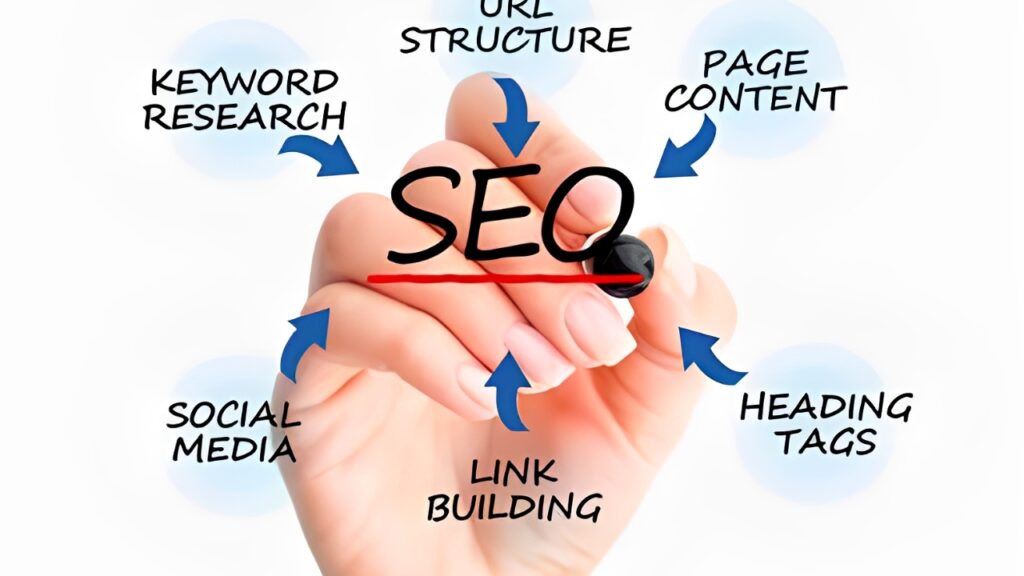In digital marketing, understanding the intricacies of Search Engine Optimization (SEO) is paramount for anyone seeking a robust online presence. This comprehensive guide aims to unravel the mysteries surrounding SEO, covering its importance, differences between SEM and PPC, types, functionality, and how one can embark on the journey to learn SEO.
How is SEO Different from SEM and PPC?
To navigate the digital marketing landscape effectively, it’s crucial to distinguish between SEO, Search Engine Marketing (SEM), and Pay-Per-Click (PPC) advertising.
SEO vs. SEM:
- SEO (Search Engine Optimization): SEO is optimizing your website to rank higher in organic search results. It involves tweaking elements like content, meta tags, and backlinks to improve the visibility of search engine results pages (SERPs). The traffic generated through SEO is organic and unpaid.
- SEM (Search Engine Marketing): SEM is a broader term encompassing both organic strategies (SEO) and paid strategies (PPC). While SEO focuses on optimizing for organic results, SEM incorporates paid advertising on search engines, like Google Ads.
SEO vs. PPC:
- SEO (Organic Traffic): SEO is centred around optimizing for organic search results. This involves improving your website’s content, structure, and authority to rank higher without paying for placement.
- PPC (Paid Advertising): on the other hand, PPC involves paying for advertisements to appear at the top of search results. Advertisers are charged a fee every time a user clicks on one of the ads. While PPC can yield quick results, it requires a continuous budget.
Understanding these distinctions is crucial for devising a holistic digital marketing strategy combining organic and paid approaches.
Why is SEO Important?
Enhanced Visibility and Traffic:
SEO significantly improves a website’s visibility on search engines. Appearing on the first page of search results increases the likelihood of users clicking on your link, resulting in a substantial increase in organic traffic.
Credibility and Trust:
Users perceive websites consistently appearing at the top of search results as more trustworthy and credible. Establishing authority through SEO helps build trust with your audience.
Cost-Effectiveness:
Compared to paid advertising, SEO is a cost-effective strategy for long-term success. While paid campaigns can deliver immediate results, investing in SEO ensures a sustainable flow of organic traffic over time.
Improved User Experience:
SEO isn’t just about pleasing search engines; it’s about enhancing the overall user experience. A well-optimized website is more likely to be user-friendly, increasing engagement and satisfaction.
Types of SEO
Understanding the different types of SEO is vital for crafting a comprehensive optimization strategy. Here are the primary types:
On-Page SEO:
This involves optimizing individual pages on your website to rank higher and earn more relevant traffic. On-page SEO includes optimizing content, meta tags, headings, and internal linking.
Off-Page SEO:
Off-page SEO focuses on external factors that impact your site’s visibility. This includes building quality backlinks, social media signals, and online reputation management.
Technical SEO:
Technical SEO addresses the backend aspects of your website. It guarantees that search engines can efficiently crawl and index your website. Technical SEO includes site speed, mobile-friendliness, and secure HTTPS connections.
Local SEO:
Local SEO is essential for businesses targeting local audiences. It involves optimizing your online presence to appear in local search results, particularly on Google Maps.
E-commerce SEO:
E-commerce SEO, or Search Engine Optimization, is a tailored strategy for online businesses. It involves optimizing product pages, enhancing user experience, and employing effective keywords to boost visibility on search engines. With E-commerce SEO, businesses can attract targeted traffic, improve rankings, and ultimately increase sales by ensuring their products are easily discoverable in the competitive online landscape. It’s crucial for any e-commerce venture looking to thrive in the digital marketplace.
Voice Search SEO:
As voice search becomes more prevalent, optimizing for how people speak rather than type is gaining importance. Voice Search SEO involves understanding natural language queries and providing relevant answers.
How Does SEO Work?
SEO is a multifaceted process that involves numerous strategies to optimize your website and content for search engines. Here’s a simplified overview of how SEO works:
Identify relevant keywords your target audience will likely use when searching for products or information about your business.
On-Page Optimization:
Optimize individual pages by incorporating selected keywords into titles, headings, meta descriptions, and content. Ensure content is high-quality, informative, and relevant.
Off-Page Optimization:
Build a strong backlink profile by obtaining high-quality, authoritative links from other websites. Engage in social media to boost your online presence.
Technical Optimization:
Address technical aspects like site speed, mobile optimization, and secure connections to enhance the overall user experience and make your site more favourable to search engines.
Content Creation:
Regularly create and update content that resonates with your audience. This can include blog posts, articles, videos, and other forms of valuable content.
Monitoring and Analysis:
Track the effectiveness of your website with tools like Google Analytics. Analyze key metrics such as traffic, bounce, and conversion rates to refine your SEO strategy.
How to Learn SEO?
Embarking on the journey to learn SEO requires theoretical knowledge and practical experience. Here’s a roadmap to guide your learning process:
Online Courses:
Enroll in reputable online courses that cover the fundamentals and advanced concepts of SEO. Platforms like Moz, SEMrush, and HubSpot offer comprehensive SEO courses.
Blogs and Books:
Read industry-leading blogs and books to stay updated on the latest trends and strategies in SEO. Follow experts like Neil Patel, Brian Dean, and Rand Fishkin for valuable insights.
Practice on Your Website:
Apply your knowledge by implementing SEO strategies on your website. Experiment with different techniques and monitor the impact on your site’s performance.
Join SEO Communities:
Participate in SEO communities and forums to connect with other professionals and stay informed about industry updates. Platforms like Reddit, Moz Community, and SEOchat are excellent resources.
Attend Workshops and Conferences:
Attend workshops, webinars, and conferences to gain hands-on experience and network with seasoned professionals. Events like MozCon and Search Marketing Expo (SMX) provide valuable learning opportunities.
Stay Updated:
SEO is an ever-evolving field, so staying updated is crucial. Follow industry news, algorithm updates, and case studies to adapt your strategies accordingly.
By combining theoretical knowledge with practical application and staying connected with the SEO community, You are well-equipped to navigate the dynamic landscape of search engine optimization.
Conclusion
In conclusion, SEO is the cornerstone of successful digital marketing, offering a sustainable and cost-effective way to boost online visibility. Understanding its importance, different types, functionalities, and how to learn SEO provides a solid foundation for businesses and individuals looking to thrive digitally.
With this knowledge, you’re ready to embark on your SEO journey, optimizing your online presence and ensuring your website stands out in the ever-expanding digital landscape. Stay curious, stay updated, and watch as your mastery of SEO transforms your digital footprint.


